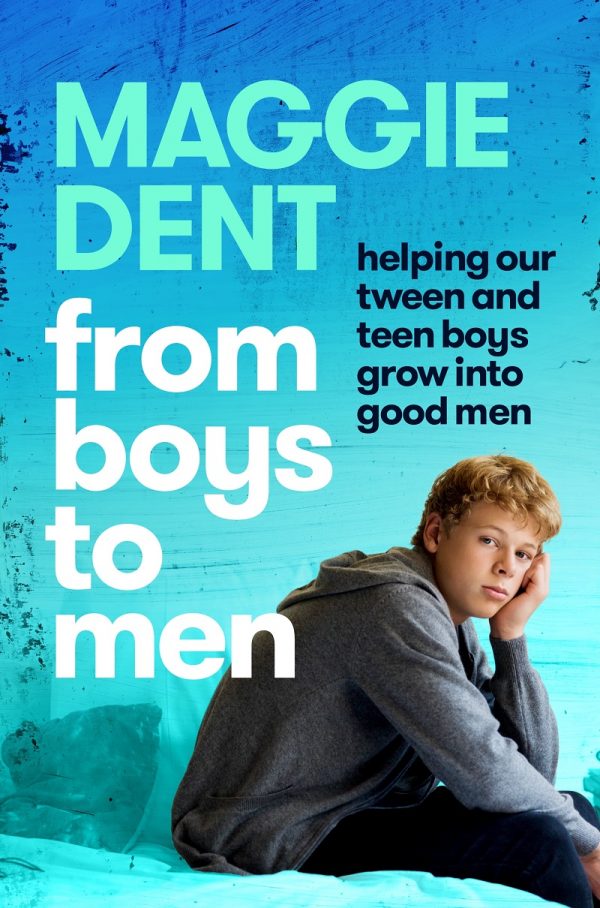
In this extract from her new book, From Boys to Men, well-known parenting educator Maggie Dent gives parents ideas and strategies to get the conversation going with their teenage sons.
The less threatening the physical approach and placement of the grown-up and the safer the place where the conversation takes place, the more likely the boy will feel open enough to at least hear the words being spoken.
Eye contact
It is interesting that women often prefer direct eye contact to men and boys, and many boys can find eye contact threatening. Demanding that a boy maintains eye contact with you is more than likely putting him into a position of threat that will trigger his amygdala and mean he will be unable to listen to what you are saying (just in case he needs to run to survive an attack on his life). Don’t insist on or expect direct eye contact!
Placement and place
Imagine a person standing in front of you with their hands on their hips about to speak to you. I guarantee it will put you on the defensive immediately. The position of my chair in my counselling room was carefully placed to ensure I was not directly in front of any boy who came to see me. Consider having a conversation in the car, sitting beside them on a couch, or leaning together on the railing of a balcony in order to lower the level of threat in the conversation
Movement
If you need to have a reasonably serious conversation with any boy but especially any over the age of 10, may I suggest you combine it with some form of movement such as going for a walk, or shooting hoops with a basketball. Choosing a relaxed location can really help him to feel calm and safe to hear you, especially if he feels confident no-one else will hear the conversation.

Tone
I cannot stress the importance of tonality in communication with sensitive teens, particularly our boys, enough. The tone of your voice is enormously important if you choose to communicate meaningfully. So many boys have been conditioned that raised voices, sarcasm, criticism and shaming means that they have done something bad, naughty or upsetting and they are about to be punished. Please remember that they often misread your tone just as they do your physiology and this will trigger their amygdala into fight-flight mode.
- Avoid using their full name with a harsh tone.
- Remember the power of using names of endearment, or just less threatening ones like ‘mate’, ‘bud’ or even ‘dude’.
Timing
Times to avoid important parent conversations with tween/teen boys
- When you are upset, especially angry
- In the heat of the moment!
- Before you know the full facts or the full story
- At breakfast time as they are often still half asleep
- Straight after school
- While they are watching a favourite TV show
- While they are busy on a device, especially when gaming or watching other people gaming on YouTube
- While anyone else is nearby
- When they are hungry
- When they are tired
- While they are eating
- When they are having a growth spurt
- Within hours of the significant misdemeanour
- Within 24 hours of a misdemeanour that happened in public
- Within 24 hours of having returned home from a sleepover or a school camp
- On their birthday/special family day
- Just before visitors arrive.

Top tips for good timing
- Approach them when none of the above is happening.
- Ask them when would be a good time for you to have a chat – most boys are very sensitive to feeling ambushed.
- Remind them gently just before it is chat time, and possibly check if they want a hot drink or a snack.
- Building rapport – a bridge of connection – is incredibly helpful when having conversations with tween and teen boys. A gentle punch in the arm, tussle of the hair or even a wink – these all help boys feel safer before the conversation begins. Oh, and never forget the power of the well-timed fart!

About the book and Maggie Dent
From Boys to Men by Maggie Dent; published by Macmillan Australia; RRP $34.99
Maggie is one of Australia’s favourite parenting authors and educators, with a particular interest in the early years, adolescence and resilience, and is known as the ‘queen of common sense’.
Like this post? Please share using the buttons on this page.
Subscribe to The Parents Website

